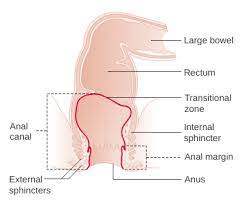INTRODUCTION
PKU is most common clinically encountered inborn error of amino acid metabolism. It is caused due to deficiency of phenylalanine hydroxylase. It is a very rare disease. The deficiency of this enzyme leads to the accumulation of phenylalanine since it fails to convert into tyrosine. This can lead to serious health problems. Incidence of phenylketonuria is as high as 1 in 15000 births.
TYPES
There are five types of PKU :-
TYPE 1: Due to defect in phenylalanine hydroxylase
TYPE 2&3: Due to defect in dihydrobiopterin reductase
TYPE 4&5: Due to defect in dihydrobiopterin biosynthesis
CLINICAL MANIFESTATIONS
As the name suggests, PKU is also characterized by elevated levels of a phenylketone in the urine. This leads to :-
- The PKU child is mentally retarded with an average IQ of less than 50.
- Agitation, hyperactivity, tremors and convulsions are often manifested.
- Hypopigmentation because of decreased level of tyrosine.
- Phenylacetic acid in sweat may lead to mousy body odor.
DIAGNOSIS OF PHENYLKETONURIA
Early diagnosis of PKU is important because the disease is treatable by dietary means. Because of the lack of neonatal symptoms, laboratory testing for elevated blood levels of phenylalanine is mandatory for detection. These are few diagnostic methods :-
- Blood phenylalanine: Normal level is 1mg/dL. In PKU the level is >20mg/dL.
- Tandem mass spectroscopy is the most reliable test.
- Guthrie test is a rapid screening test.
- DNA probes: Prenatal diagnosis
TREATMENT OF PHENYLKETONURIA
The earlier treatment started, the more completely neurologic damage can be prevented. Avoid phenylalanine in diet (meat, poultry products). Tyrosine becomes essential amino acid has to be supplied in the diet. Individuals who are appropriately treated can have normal intelligence. Treatment must begin during the first 7-10 days of life to prevent cognitive impairment. Adult PKU patients show deterioration of IQ scores after discontinuation of the diet. Therefore lifelong restriction of dietary phenylalanine is recommended.
PHENYLKETONURIA IN PREGNANCY

If women with PKU who are not on a low-phenylalanine diet become pregnant, the offspring can be affected with maternal PKU syndrome. High blood phenylalanine in the mother has a teratogenic effect, causing microcephaly and congenital heart abnormalities in the fetus. Because these development responses to high phenylalanine occur during first month of pregnancy, dietary control of blood phenylalanine must begin prior to conception and can be maintained throughout the pregnancy.
FOR MORE CLINICAL TOPICS VISIT – https://medmaps.in/clinicals/
GET CONNECTED TO US ON OUR INSTAGRAM PAGE – https://www.instagram.com/medmaps.in/



0 Comments